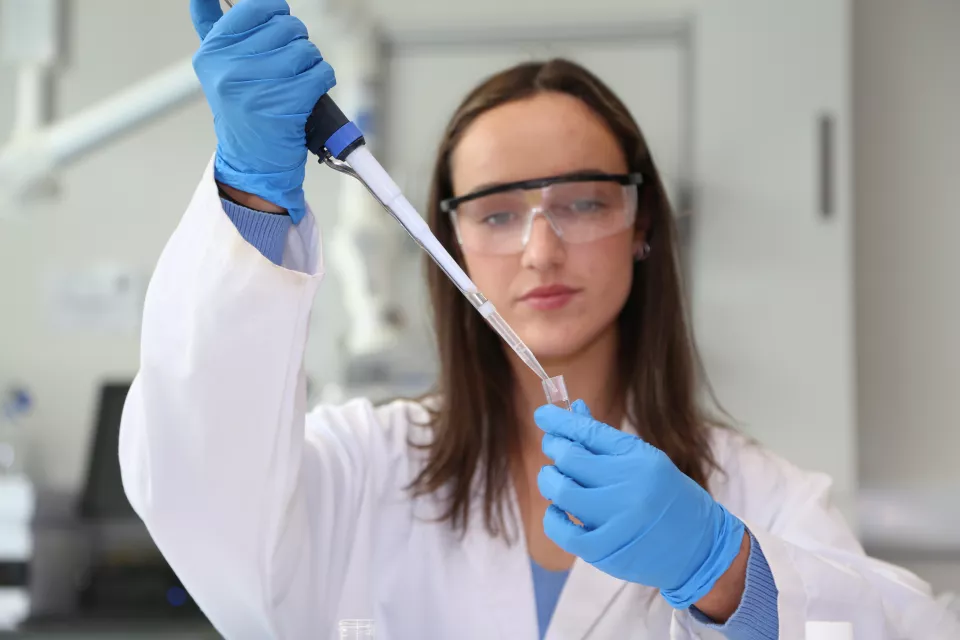
Course: Industrial Biochemistry
Supervisor: Luis Padrela
Name of Research Project/Activity: Production of drug-polymer nanocomposites with aminoacids/proteins using nanoprecipitation
Q) Can you tell me a bit about yourself, your background, and why you decided to study the course you are taking at UL?
I’m from Limerick, and have just completed my second year of study of Industrial Biochemistry at the University of Limerick. I’ve known since my transition year in secondary school at Gaelcholaiste Luimnigh that a career in science was something I wanted to pursue. My participation in science fair competitions such as SciFest and the BT Young Scientist Exhibition, with a project that investigated the effect of aluminium on plant growth, allowed me to explore my potential in the world of science. I quickly realised that science – biology and chemistry in particular – really interested me and I wanted to continue my learning. While I considered many third level courses that incorporated aspects of biology and chemistry, I ultimately decided that Industrial Biochemistry, through the common entry route of Biological and Chemical Sciences, was the best option for me.
Q) What motivated you to apply for the Summer Bursary Programme?
I decided to apply for the Science and Engineering Summer Bursary Programme as I felt it would be a great way for me to gain insight into what a career in research might be like. I really enjoy lab work and the opportunity to work in the Bernal labs and gain hands-on experience was very appealing to me. The topics being explored by Luis and his team are really interesting and I couldn’t wait to start investigations of my own (and hopefully contribute something useful).
Q) What are you doing as part of your research here at UL?
My research is based in the field of nanotechnology. I am aiming to produce stable drug-polymer nanoparticles of celecoxib with narrow particle size distribution. The drug-polymer nanoparticles are produced using a nanoprecipitation approach coupled with ultrasonication and the further use of electrospray. The ZetaSizer Nano ZSP is used to characterise my results in terms of particle size and zeta potential. This research is important as any developments in nanotechnology also hold great promise for improving the therapeutic index and pharmacokinetics of several drugs under systemic settings. By developing more efficient methods to make drug particles smaller, we improve the drug’s aqueous solubility and consequently its oral bioavailability – meaning the drug is more easily absorbed into the bloodstream. This prevents the need to increase drug concentration or dosage, which often leads to adverse reactions and varying patient responses.
Q) What skills have you developed over the summer?
I have developed many new skills over the summer, such as the ability to use an ultrasonic homogeniser, the Zetasizer and an electrosprayer. Since I was constantly making and testing various solutions, my application of skills such as measuring and mixing to a high degree of accuracy improved. I also made good use of Excel when organising my collected data.
Q) What has this experience taught you and what would you recommend it to others?
As well as the many lab skills I have learned and strengthened over the 10 weeks of my summer research, this experience has taught me to think analytically. It gave me the opportunity to assess any obstacles that I encountered along the way and solve them creatively, giving insight into the ups and downs of R&D. It also helped me get a better idea of what life as a PhD student in UL is like.
Q) What are your future career plans, would you consider a career in research?
I’m not yet certain about my future career plans, but a career in research is definitely something I will consider. I really enjoyed my time in the internship. I look forward to my cooperative placement next year where I will get to see what a career in industry might be like.
